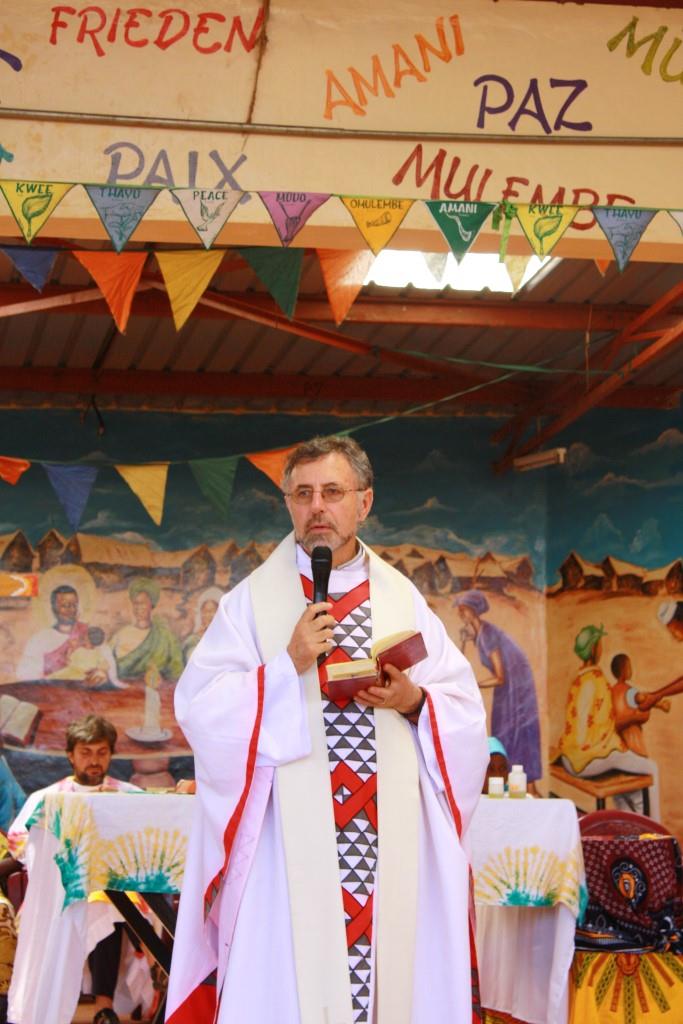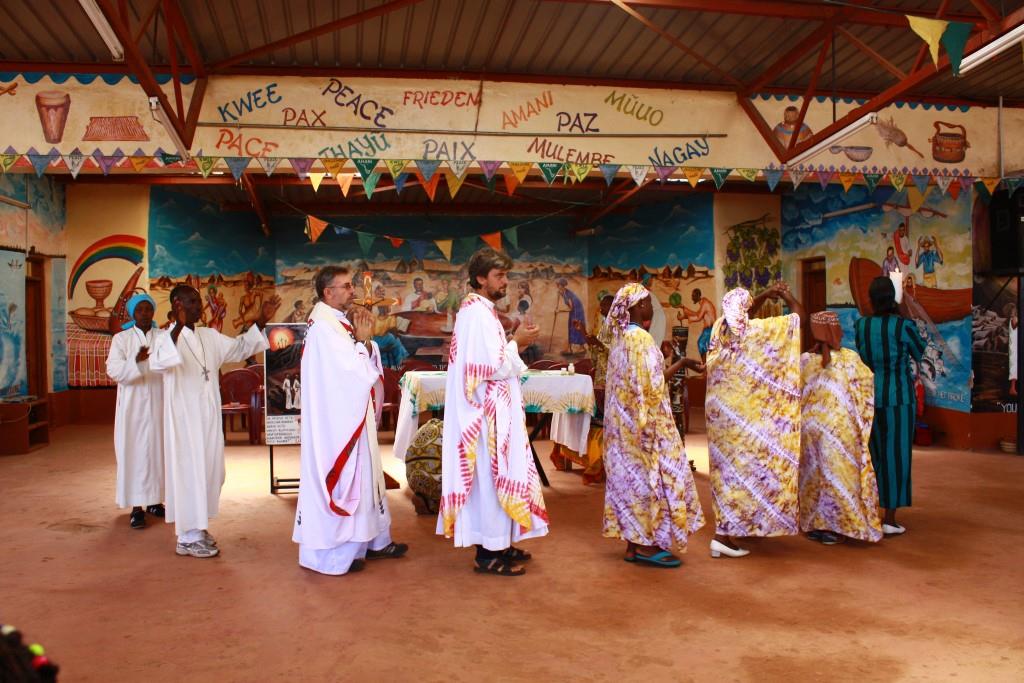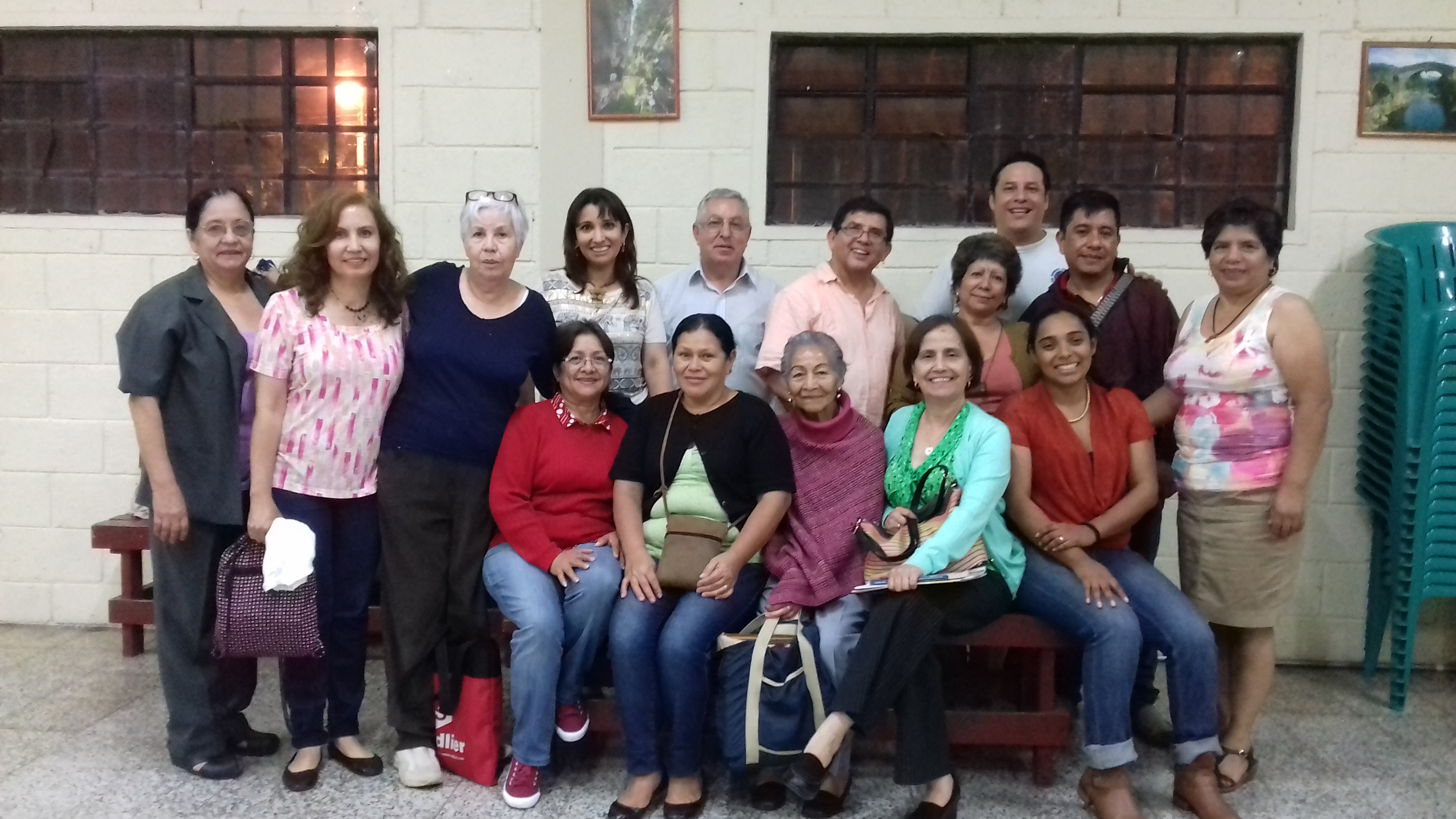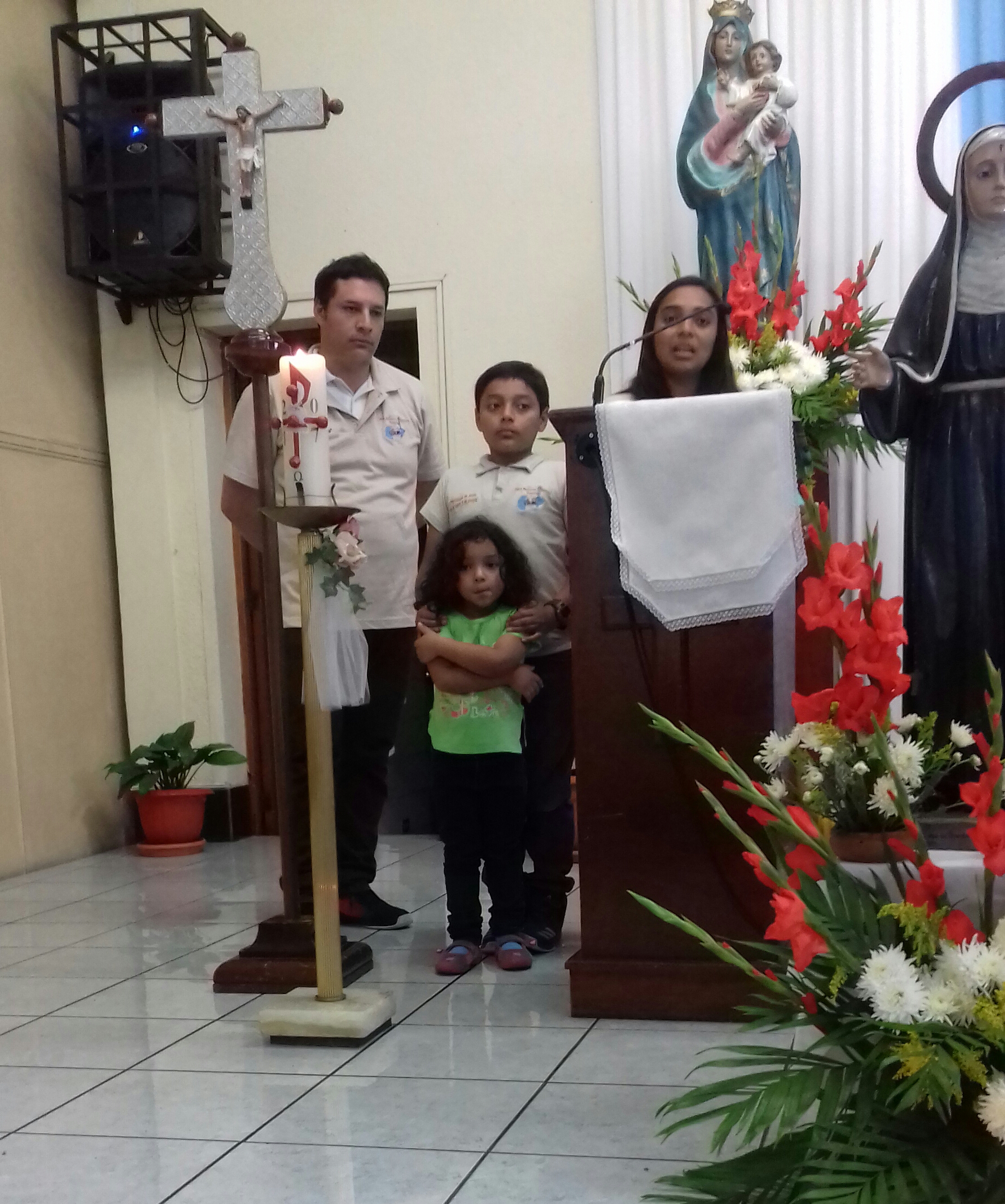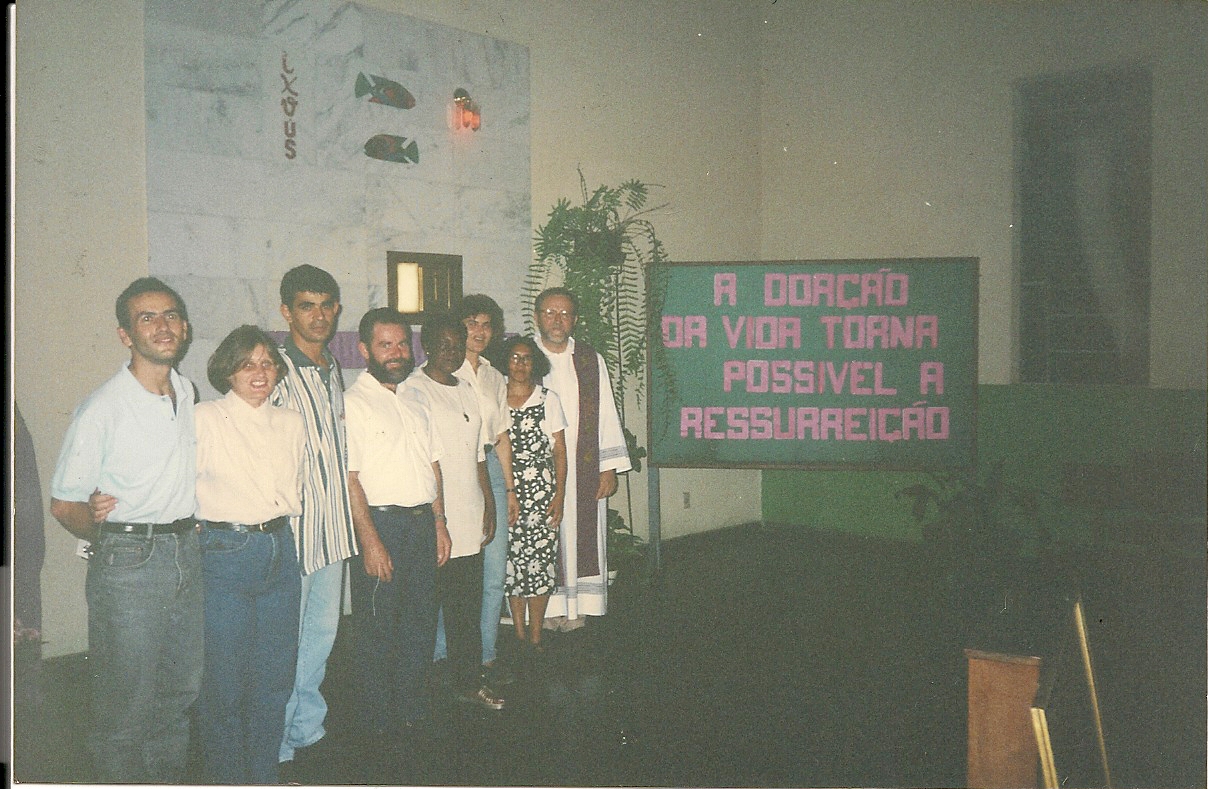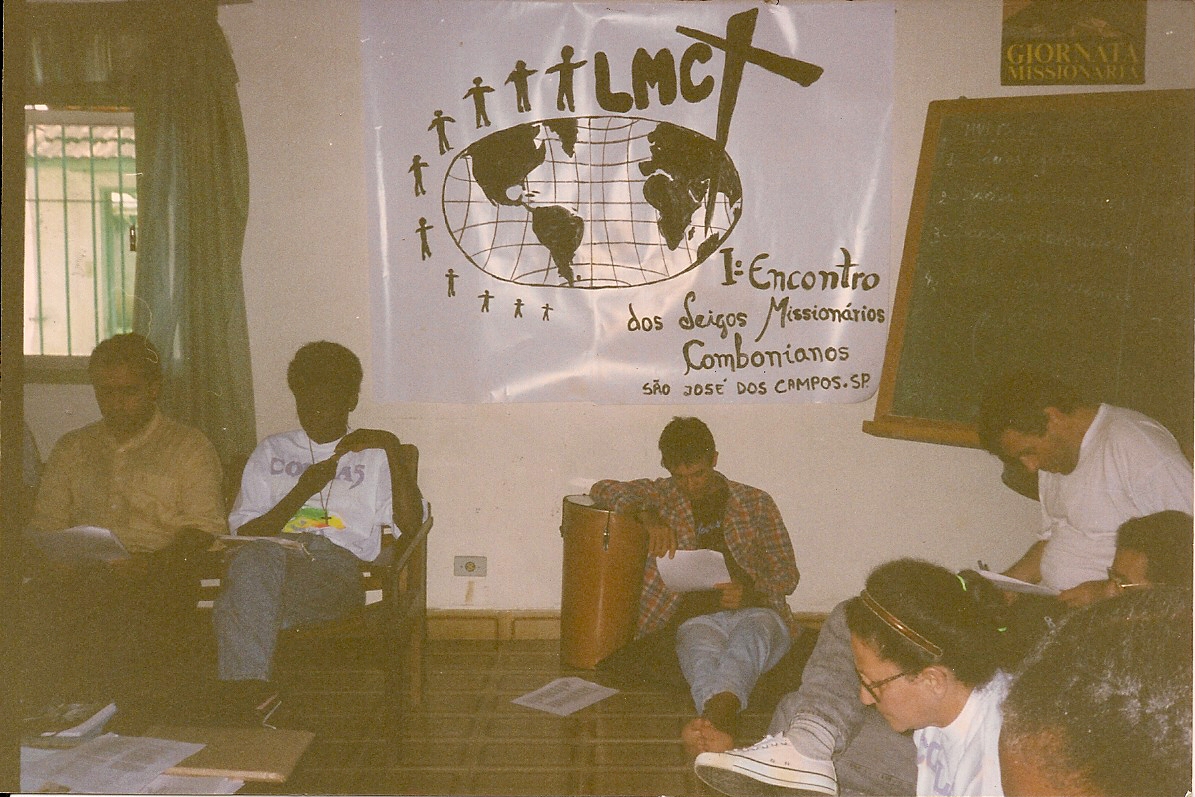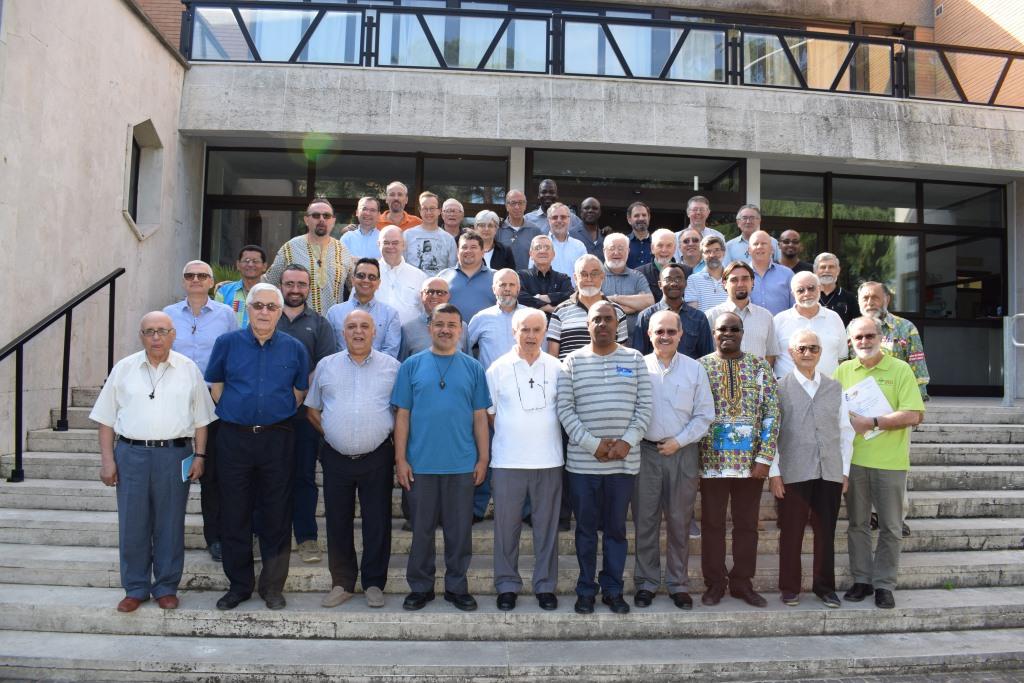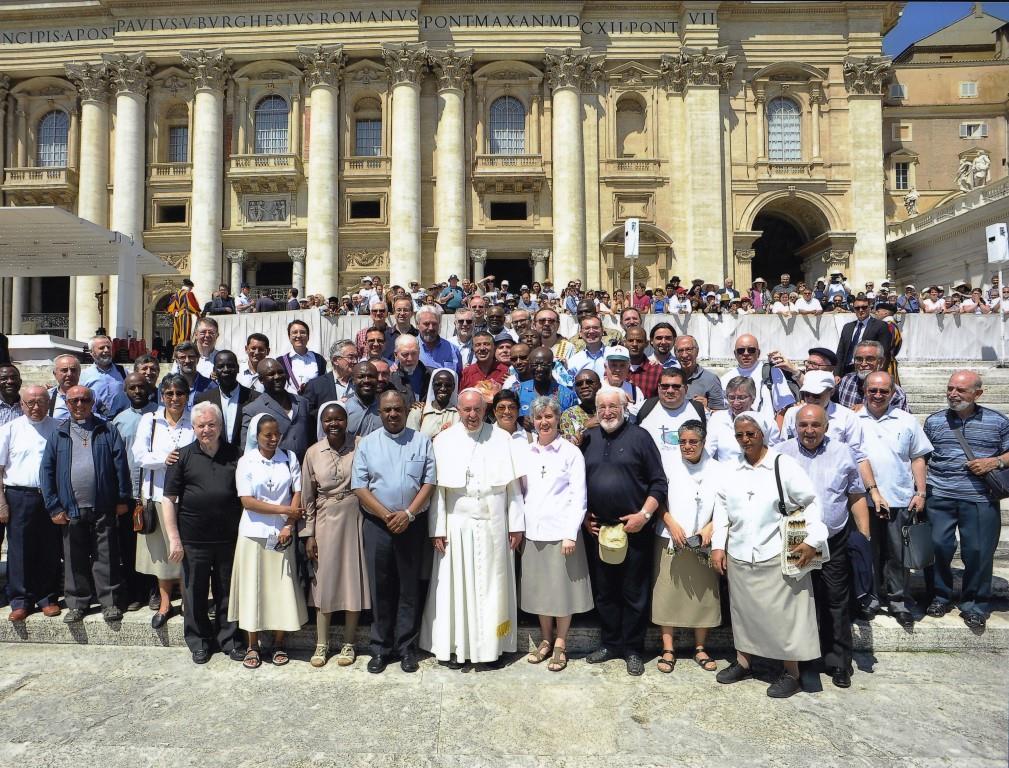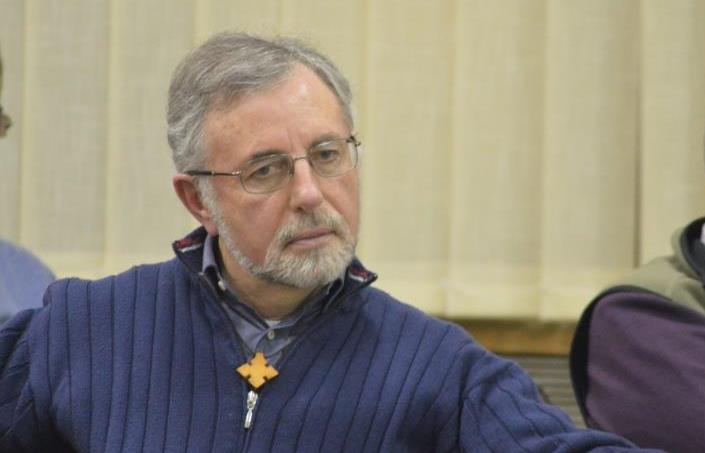 I often asked myself how my missionary experience may have influenced my understanding of others, my relationship with reality, God and my being missionary. In other words, which are the pathways that have led me to be what I am, how has my contact with people of other cultures and sensibilities changed me, how has life in common with confreres whose lives were marked by both positive and tragic experiences transformed me and how situations full of meaning and sometimes dramatic have refined my missionary sensitivity.
I often asked myself how my missionary experience may have influenced my understanding of others, my relationship with reality, God and my being missionary. In other words, which are the pathways that have led me to be what I am, how has my contact with people of other cultures and sensibilities changed me, how has life in common with confreres whose lives were marked by both positive and tragic experiences transformed me and how situations full of meaning and sometimes dramatic have refined my missionary sensitivity.
‘Telling’ of mission, then, is not simply to recount the missionary facts and problems (even less does it mean expounding ‘missionary paradigms’ that titillate the mind, perhaps, but not the heart). Telling of mission means ‘remembering the foundational events that have marked one’s life (in the broader sense of the term, as sign-events of other-realities, where one is caressed by the invisible hand of God), and form part of one’s very own history and identity; the telling, then, assumes an active dimension since, by testifying to a change that relates to mind, heart and will, it involves others in one’s missionary journey. Telling the mission is, in synthesis, giving testimony of an encounter that mysteriously emerges in history and indicates the direction to follow. The mission is born of the encounter with the love of God. In the Encyclical Evangelii Gaudium (EG) Pope Francis says: “Thanks solely to this encounter – or renewed encounter – with God’s love, which blossoms into an enriching friendship, we are liberated from our narrowness and self-absorption. We become fully human when we become more than human, when we let God bring us beyond ourselves in order to attain the fullest truth of our being. Here we find the source and inspiration of all our efforts at evangelization. For if we have received the love which restores meaning to our lives, how can we fail to share that love with others? (No. 8).
Remembering the 150 years of the Institute is, therefore, the celebration of constitutive and foundational events, that “rock from which we were hewn”, that has made us what we are and in which we discern the loving hand of God but also making memorial of the persons who incarnated its values with passion and in extreme self-giving. I am choosing three of these events which, I believe, are particularly meaningful in our life and especially in our way of living the mission as they express the fundamental constants, attitudes and dimensions.
- The death of Comboni as a paradigmatic event in his life
I must confess that I have always been fascinated by the visceral passion of Comboni for Africa, that consuming of himself for Africa, like the flame that slowly consumes the candle: how can we forget one of the last photographs of Comboni, at the end of his life with his beard turning white and his face marked by suffering? But I have also been always fascinated by the death of Comboni and its aftermath, as emblematic events in his life. Comboni died while the dark, threatening clouds of the Mahdi revolution, which would sweep away the mission of Sudan, gathered on the horizon. A few days before his death, he had written a letter to Fr. Sembianti ending with these words: “I am happy with my cross that, willingly borne for love of God, generates triumph and life eternal”. Words that, from a merely human point of view, seemed to contradict the evidence, at least in what concerned the ‘triumph’ of his mission. Who could understand, as he did, the enormity of the mission and the inadequacy of the resources? An inheritance received by Johan Dichtl who assisted Comboni in the last hours of his life but who was still too young, apparently, to carry on that super-human mission – an inheritance that seemed to come to an end a short time later with the coming of the Madhya.
Comboni was buried in the garden of the mission, next to the grave of the first Pro-Vicar Apostolic, the Jesuit Massimiliano Ryllo. After the revolution, in 1901, the then Vicar Apostolic Mons. Roveggio returned to the cemetery of the mission of Khartoum to exhume the bodies. “[…] I went back to the garden of Khartoum mission, – writes Domenico Agasso in his biography of Comboni – and the graves of Father Ryllo and Monsignor Comboni. The first was found intact. […]. Of Daniele Comboni, instead, after that destruction, there remained just a few bones mixed with the soil. […]. A few remains […]: the body of the Vicar Apostolic remained there, for the most part, mixed with that soil. Total self-giving […] Comboni and Africa, a single unit”[1]. It is an emotional scene with words that express even more the visceral passion of Comboni of whom not only the life but also the death seems to belong to Africa. It is an event, in my view, that is highly symbolic: the body of Comboni “mixed with that soil” almost as if to render it fertile – that belonging of his that went beyond death. But, beyond all emotions, the human point of view would lead us to think that the great dream of Comboni had ended in failure – like the dreams of others before him.
The words of Pope Francis are, I feel, illuminating. In Evangelii Gaudium he formulates a fundamental principle for the construction of a new society: time is superior to space. “Giving priority to time, the Pope affirms, means being concerned about initiating processes rather than possessing spaces. Time governs spaces, illumines them and makes them links in a constantly expanding chain, with no possibility of return. What we need, then, is to give priority to actions which generate new processes in society and engage other persons and groups who can develop them to the point where they bear fruit in significant historical events. Without anxiety, but with clear convictions and tenacity”. And again: “This criterion also applies to evangelization, which calls for attention to the bigger picture, openness to suitable processes and concern for the long run” (Nos. 223 and 225).
The life of Comboni as a generating action in a process of change through people who, however few in number, continue his dream. Therefore, a criterion of missionary method and missionary promotion is that of actuating generating actions which, however insignificant, trigger a movement of transformation, associating with them people who may themselves become instruments of change. There is no shortage of examples in our history. I refer briefly to Bro. Michele Sergi and his ‘club’ in Khartoum, a meeting and formation place for the youth, an achievement with no great pretensions, but many of those formed in it became pioneers of evangelisation in the areas of South Sudan the missionaries had not yet reached.
The whirlwind of the Mahdi, soon after the premature death of Comboni, descended upon our missions. The mission of Central Africa was swept away and the men and women missionaries in Egypt either flee or are made prisoners. The latter would undergo a Calvary of prison and humiliation.
About twenty years later, the missionaries returned to Khartoum and began the march south to found new missions; this they did with no reference points, or experience or even a missionary manual. Fr. Antonio Vignato, thinking over his first experiences in Sudan, describes the situation: “The terrible delay in our catechistical organisation must also be attributed to the lack of experience of how to organise the mission; none of us had observed on the spot the work of other missionaries and very few had read of others’ experience. The only experience we knew of was that of the anti-slavery colony of Gesira […] and that of the schools of Helouan, Suakim and the like”[2]. They had to start from scratch and re-found the dream of Comboni, despite the inherent difficulties and the obstacles placed in their way.
Losing everything and starting again from the beginning and re-founding the dream of Comboni – or to keep it alive amidst the tragedies in which many of us found ourselves – is a constant that accompanied us from the beginning. It is as if Our Lord had led us, through these and other painful experiences, to the core of the mission. I remember the destruction caused by the war in Uganda, when I was a scholastic; missions destroyed: Maracha, Koboko and others; I remember the mission of Otumbari, left by the missionaries on the orders of the Bishop since it was in an area of guerrilla warfare, the sorrow of Fr. Bernardo Sartori when he was told to evacuate the mission, even though he was not convinced of it, and how he bowed his head in obedience. I also remember those confreres who stayed with the people despite war and violence, at times following them as refugees. Doggedly starting again to keep alive the dream of Comboni which is, in fact, that of Jesus, or re-founding it when all seemed lost, going through the painful process of kenosis, a participation in the kenosis of Jesus where the work of years is destroyed and wiped out; however, it is an experience that may, through a process of discernment guided by the Spirit, become a kairòs, an opportune moment of growth and change.
And now we are called to return to the essential through the obliteration of ephemeral certainties and well-thought-out plans and methods when these are simply the fruit of “vainglory”. “How often we dream up vast apostolic projects, meticulously planned, just like defeated generals! But this is to deny our history as a Church, which is glorious precisely because it is a history of sacrifice, of hopes and daily struggles, of lives spent in service and fidelity to work, tiring as it may be, for all work is “the sweat of our brow”, (EG No. 96). It is then that the tragedies, the defeats, the losses and the elimination of our mundane certainties become a call to conversion and become foundational events to help us return to the roots of our identity and of the mission.
In just a few sections, Evangelii Gaudium outlines the dimensions of an ‘outgoing’ community and of what makes up the essence of the mission. Pope Francis speaks of taking the initiative, seeking out those who are fallen, standing at the crossroads and welcoming the outcasts: it means going out to the ‘poorest and most abandoned’ of our tradition; the ad gentes formula, in this perspective, is still valid. But Francis also speaks of a community that becomes involved and “assumes human life by touching the suffering flesh of Christ in the people”, something that echoes ‘making common cause with the people’ which forms part of the Comboni methodology of evangelisation; mission means touching the suffering flesh of one’s brothers – ‘flesh’ being understood in its various dimensions: human, social and cultural – and an invitation not to “remain in the pure idea or degenerate into self-centredness or Gnosticism that do not produce fruit”, but to put in place “The principle of reality, of a Word already made flesh and constantly striving to take flesh anew” according to the criterion that “reality is more important than ideas” (EG No. 233). Pope Francis adds other missionary dimensions: that of accompanying “humanity in all its phases, however hard or drawn out they may be”; accompanying is a journey that “it is familiar with expectations and apostolic endurance. Evangelisation takes a lot of patience and takes no account of limits”. Does not ‘Save Africa with Africa’ perhaps emphasise the process of becoming discreet companions so that the people may be the protagonists of their own destiny? Finally, the criteria of bearing fruit and rejoicing so that “the Word becomes flesh in a concrete situation and bears the fruit of new life” and “may celebrate and rejoice in every small victory, each step forward in evangelisation” (EG No. 24).
Returning to the essence of mission means rediscovering the community as a subject that evangelises, that takes the initiative, becomes involved, accompanies, bears fruit and rejoices because, as the Encyclical says, the community “is an ongoing closeness and the communion «defines itself essentially as missionary communion»” inspired by the Spirit of Jesus (EG No. 23). The community, I may add, is that ongoing closeness that: as it evangelises, is also evangelised; while it teaches, it learns; while it is the subject of mission it becomes its object in mutually enriching giving and receiving (CA ’15 No. 3, 26).
- Division and Reconciliation
Reminding ourselves, even briefly, of the events that led to the division and then to the reunion of the Institute, seems to me to have its consequences, not only as to how we understand our common belonging but also as to the way we live the mission.
The division of the Institute, sanctioned in 1923, was a “deep wound”, writes Fr. Romeo Ballan in the April, 2017, insert of Familia Comboniana, quoting the comments of Frs. F. Pierli and T. Agostoni. It was a division whose reasons seemed to carry more weight than staying united: differences in formation, different missionary method, ardent nationalism and all of this tied with the total absence of dialogue at the summit to which, as is written in the Bollettino of 1972, “the division into two parts of the one body founded by Comboni”[3], was attributed. It was a division that many Combonians, open of heart and mind, painfully lived through: “The separation was never without its regrets – the same article insisted – indeed, for some it was even a matter of conscience” [4].
However, the yearning for reunion was never dormant since “the Comboni body remained faithful to its vocation: this was the cause of the fecund unease sown in it by Comboni”[5]. It was an unease that helped overcome reciprocal caution and prejudice when the awareness of our common belonging to Comboni as the founding figure and the understanding of the mission as the raison d’etre of “the single Comboni Institute «born in the mission »”[6] strengthened and became the generating reasons for a new movement: it was then that the unease became praxis, concrete history made up of informal dialogue, study research, collaboration in the missions, concrete achievements in shared formation in Spain, the work of people who believed in the reunion such as Frs. Riedl and Farè, the history of the deliberations of the General Chapters of the two Institutes, of the activities of the Reunion Study Commission, up to the Chapter of 1979, which formally sanctioned reunion. However, reunion, simply a formal juridical fact, was preceded by sincere dialogue, mutual acceptance and, I would say, the honest acknowledgement of one’s own prejudices, while being aware of our common identity roots as a fixed point on which to rebuild unity. I believe that this yearning for reunion and the process that started the foundational events of our identity, especially today when the Institute is assuming a striking multi-cultural identity: we are an Institute founded on reconciliation and mutual welcoming and whose mission is to create reconciled communities: forgiveness, dialogue and welcoming others are part of our missionary identity.
I therefore find especially apt the words of Evangelii Gaudium on the modalities of facing the inevitable conflicts that may arise in the community. Conflict, the Pope affirms, is not to be hidden away and neither must we be its prisoners, casting upon others our own “confusion and dissatisfaction”, but to be accepted, resolved, transformed “as the link to a new process” (EG No. 227). “In this way, the Pope continues, it becomes possible to build communion amid disagreement, but this can only be achieved by those great persons who are willing to go beyond the surface of the conflict and to see others in their deepest dignity. This requires acknowledging a principle indispensable to the building of friendship in society: namely, that unity is greater than conflict” (EG No. 228). In brief, conflict is confronted by the unconditional acceptance of others in the ambit of one’s own charismatic and missionary identity; in this way, differences and causes of conflict are transformed in resources advantageous to the mission. It is from these accepted, resolved and transformed conflicts that one may proceed along the path of building intercultural communities and the community itself becomes a sign and instrument of reconciliation and dialogue.
- In conclusion: some problematic knots
I would like to mention some questions that I believe are important in this first quarter of the XXI century. I do so without any pretence of finding solutions as, rather, suggestions for further reflection.
I have written above of an Institute where confreres who are bearers of new cultures from the Global South (a term I have borrowed from sociologists) are joining the Institute and also occupying administrative posts in it. With the coming of these confreres, the Institute is changing not only numerically but also in that they bring with them new ways of seeing religious life, community and mission, the legacy of a different cultural environment. Dialogue, nourished by listening closely to the mind of others is all the more necessary now, at a time when these cultural differences are being revealed and some solutions to questions that seemed commonly agreed upon, are again being questioned.
I refer especially to the problematic of the radically inserted community which, according to the common understanding and praxis, involves following a lifestyle of poverty, at the level of the poor and in simple structures. I ask myself if confreres of other cultures other than those of the western world have a different understanding of poverty – of living poorly, living like the poor and with the poor and, in general, a different sensitivity towards ‘radical’ poverty. I have no answers to this but I am simply asking the question in the belief that, listening to both verbal and non-verbal messages may help us to build a communion of differences, the first step towards achieving intercultural communities.
A further problem concerns the provisional nature of commitments and, in particular, that which is connected to the responsibility to leave a commitment (I am thinking especially of parishes) when it has reached a certain level of self-sufficiency in financial matters, ministry and mission (RL No.70). I may add, as a digression with no wish to be controversial, that commitments that were not self-sufficient and still required our presence were handed over to the Bishop because it was not possible to continue them due to lack of personnel. The ideals of the Rule of Life are often in conflict with the limits of history. The problem of handing over self-sufficient parishes, especially those that are flourishing economically, is being discussed now that confreres who radically belong to a Circumscription said to be ‘mission territory’ are increasing and are rightly administering them. The autonomy of the Circumscriptions and the economic maintenance of radical confreres is a serious problem to which many Circumscriptions are seeking a solution. In this perspective and in the light of new historical circumstances, assertions and doctrines that we believed to be accepted by all must now be revisited. In my experience as provincial, I recall the doubts and perplexities of the radical confreres due to the decision to hand over to the Bishop an economically flourishing parish.
A third problematic knot is the mission that is contextualised and the juridical structure of the Institute divided into provinces and delegations that generally follow national borders. Many ‘missionary situations’ such as the nomadic pastoral people of West Africa, people of African ancestry, the indigenous peoples of Latin America and even the problems associated with the outskirts of large cities, transcend national and Circumscription borders. Indeed, within the Institute we speak of ‘continental commitments’ when referring to such contexts. I must ask myself whether the juridical organisation of the Institute, in line with the criterion of missionary commitment, should not be reviewed and adapted to the new situation; whether a juridical area should be organised according to ‘missionary situations’ rather than the administrative borders of a nation. This is not a new problem: it was a question that emerged during the General Chapter of 2009, but with no real lasting solution. It is also true that, as regards the exchange of personnel among Circumscriptions, the Rule of Life allows for a degree of flexibility (116 and 125), and it is also true that, remodelling a Circumscription (or whatever it may be called) according to a ‘missionary situation’ helps to create homogeneity and identity in the Circumscription itself, to discern common pastoral policy and to facilitate, on the part of the Superior, the process of understanding the commitments taken.
It seems to me that these three problematic knots (and others that may still emerge) require deep reflection, constant dialogue and sincere discernment. “To continue listening to God, to Comboni and to humanity, in order to know how to read and propose the signs of the times and of places in the mission of today” (CA ’15 No. 22) is a duty we must not fail to fulfil.
Fr. Mariano Tibaldo, mccj
Questions for reflection
Remembering my personal history and/or that of the circumscription, what are the foundational experiences that have marked its life and in which I can see the presence of God? How have these events changed me and/or changed the life of the circumscription?
- Have there been generating actions that started a transformation of the circumscription and/or of a social situation? What changes did they bring about? Who were those who took the initiative? How much of our missionary action is due to the ‘vainglory’ of personal plans rather than the concern to initiate processes of change?
- What difficult situations on the personal and/or circumscription level have purified and made more credible my way of being missionary and have helped the circumscription to rediscover the essence of the mission?
- What conflicts exist and how do I manage them at community and circumscription level?
[1] Domenico Agasso sr – Domenico Agasso jr, Un profeta per l’Africa. Daniele Comboni, Cinisello Balsamo (Milano), San Paolo, 2011, pp. 279-280.
[2] Antonio Vignato, Una pagina di storia catechetica africana, in «Combonianum», 8 (1944)2, p. 11-12. Roma, Archivio Centrale, l/A/l.
[3] Breve cronologia dei contatti tra Comboniani Italiani (FSCJ) e Tedeschi (MFSC), in «Bollettino» (1972)97, p. 58.
[4] Ibid. p. 58.
[5] Ibid. p. 58.
[6] Ibid. p. 59.




